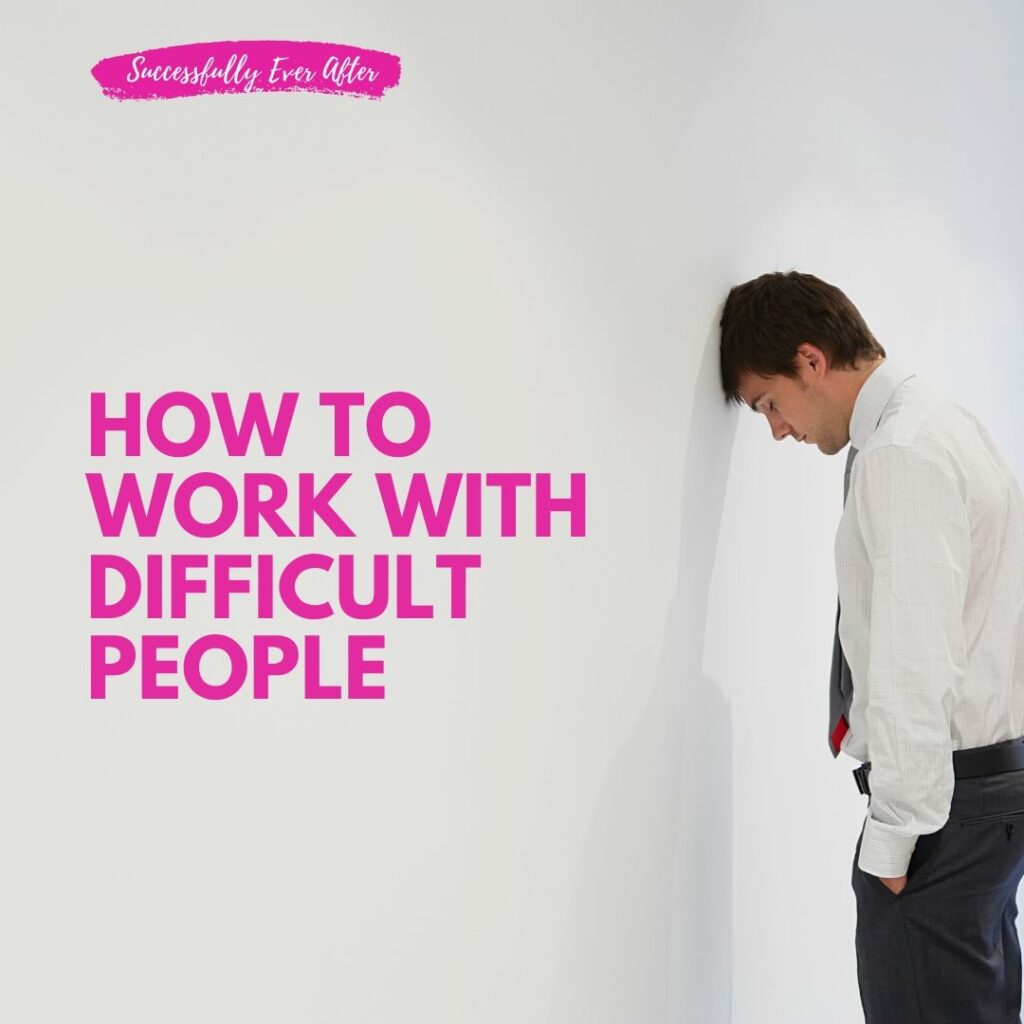
No matter where you work or what industry you happen to work in, there’s a good chance you’ll meet someone you can’t stand working with. It’s unfortunate, but true.
Maybe it’s as simple as getting a cubicle mate who is loud or overbearing. Or maybe it means dealing with someone who never gets things done on time. The truth is we’re not always going to be friendly with the people we work with. However, it doesn’t mean we can’t do anything to deal with the negative environment.
Take some time to follow these tips for dealing with difficult co-workers. Once you begin implementing them, you’ll find that it does get a bit easier to work with difficult people. I’ve also created some checklists for Dealing with Difficult People in the Workplace. Here’s the FREE Download.
- Remember: You’re NOT the Boss: If you don’t have authority over the other person, you’re going to look very unprofessional if you start telling them how to do their job. If your coworker is lazy or does a poor job and you’re tempted to correct their mistakes, don’t expect to be thanked for it. And don’t be surprised if they’re stubborn about your good-natured advice either. Lead by example and focus on doing your own work successfully.
- Avoid Communication through Email : When dealing with someone who’s difficult, try making it a priority to handle things on the phone or face to face. If you’re concerned about coming across well, remember emails can come across as sounding very blunt and brusque. If you must communicate via email, try reading your emails out loud before sending. Without tone or facial expression to help you out, you may come off as being angry or upset, even when you don’t intend to. Though you might love nothing more than to avoid the person, make sure poor or misinterpreted communication doesn’t compound your issues.
- Avoid Gossip : When someone at work is difficult, it seems natural to gossip about him or her, but don’t do it. If you must vent your frustrations or get another opinion, wait until you get home. Avoid office drama by not participating in gossip. Not only do many offices have strict policies about gossip, you never know who might be listening. Be friendly and make sure you always take the moral high road.
- Let Go of Your Anger : When you’re dealing with a difficult person, it’s easy to get angry. You think of the time they have wasted, the things they have done, and before you know it, you might have your teeth clenched! Remember anger is an energy drain. The more time you spend being angry, the less time you have to spend on important things. Take time to release your anger and turn it towards more productive things. Don’t let your annoying coworker eat up any more of your time than they already have.
- Keep a List : If your coworker’s problems start to affect your work performance, start keeping a list of all the problems that arise. It can help you establish a paper trail should it be necessary later. Keep a list, date it, and if necessary, show it to your boss in a formal complaint. Doing this will give you evidence in the event that your coworker disputes your complaint.
We all have coworkers whom we’d rather not work with. Unfortunately, we don’t tend to have any control over who works with us. Instead of wasting your time and energy stressing over those annoying people in your life, just get the job done while keeping problems to a minimum. Focusing on your own job, along with carrying out the actions mentioned above, will save you your sanity in the long run!


